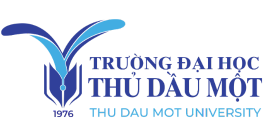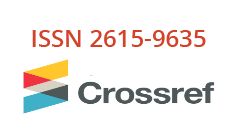UTILIZATION OF SOME THEORETICAL MODELS TO COMPREHEND CONSUMPTION OF EMPTY CALORIES
Abstract
The objective of this paper is to describe the empty calories consumption using the application of some behavior change models (theories). The alarming rise in empty calories consumption, encompassing fast foods, junk foods, and ultra-processed foods, poses a significant threat to global public health. This review synthesizes existing literature on the prevalence, health implications, and determinants of empty calories consumption. Findings reveal a robust link between empty calories intake and various chronic diseases, including obesity, diabetes, cardiovascular disease, and certain cancers. The socio-ecological model (SEM) provides a framework for understanding the multifaceted influences on empty calories consumption, spanning individual, social, community, organizational, and policy levels. Other related theories are equally important in discerning empty calories consumption nowadays. This paper concludes by advocating for a multi-faceted approach to mitigate empty calories consumption, incorporating targeted interventions at individual, community, and policy levels
Keywords
Full text
View PDFPublication Information
Publisher
Thu Dau Mot University, Viet Nam
Editor-in-Chief

Assoc. Prof. Nguyen Van Hiep
Thu Dau Mot University
Thu Dau Mot University
Editorial Board

Assoc. Prof. Le Tuan Anh
Thu Dau Mot University
Thu Dau Mot University

PhD. Nguyen Quoc Cuong
Thu Dau Mot University
Thu Dau Mot University

PhD. Doan Ngoc Xuan
Thu Dau Mot University
Thu Dau Mot University

PhD. Nguyen Khoa Truong An
Thu Dau Mot University
Thu Dau Mot University

Assoc. Prof. Nguyen Thanh Binh
Thu Dau Mot University
Thu Dau Mot University

PhD. Le Thi Thuy Dung
Thu Dau Mot University
Thu Dau Mot University

PhD. Ngo Hong Diep
Thu Dau Mot University
Thu Dau Mot University

PhD. Nguyen Duc Dat Duc
Ho Chi Minh City University of Industry and Trade
Ho Chi Minh City University of Industry and Trade

Assoc. Prof. Nguyen Van Duc
Animal Husbandry Association of Vietnam
Animal Husbandry Association of Vietnam

PhD. Nguyen Thi Nhat Hang
Department of Education and Training of Binh Duong Province
Department of Education and Training of Binh Duong Province

PhD. Nguyen Thi Cam Le
Vietnam Aviation Academy
Vietnam Aviation Academy

PhD. Trần Hạnh Minh Phương
Thu Dau Mot University
Thu Dau Mot University

M.A. Pham Van Thinh
Thu Dau Mot University
Thu Dau Mot University

PhD. Nguyen Thi Lien Thuong
Thu Dau Mot University
Thu Dau Mot University

Prof. Le Quang Tri
Can Tho University
Can Tho University

Prof. Banh Quoc Tuan
Thu Dau Mot University
Thu Dau Mot University

